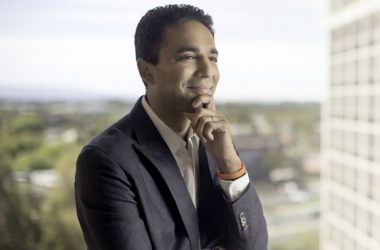 Big Data is forecast by analysts to drive a major chunk of IT spending in 2014. However, its deployment requires painstaking planning and clear strategies to be successful. When referring to Big Data, vendors lack consistent definition and the Symposium brought together thought-leaders to demystify what the terminology actually means and provide insights on the rights tools and strategy to realise the full potential of the technology.
Big Data is forecast by analysts to drive a major chunk of IT spending in 2014. However, its deployment requires painstaking planning and clear strategies to be successful. When referring to Big Data, vendors lack consistent definition and the Symposium brought together thought-leaders to demystify what the terminology actually means and provide insights on the rights tools and strategy to realise the full potential of the technology.
The event was flagged off by Jitendra Kapoor, Senior Manager- Digital Services at Etisalat, who set the stage by turning the spotlight on the vast economic impact Big Data and associated technologies have on many industries. “Data is exploding. However, 85 percent of that is new data types from new sources. This means that conventional methods of process aren’t enough to leverage the vast amount of information that has been collected. There is an urgent need for an enterprise data hub, especially in larger organisations, which collates, using Big Data technologies, information from various sources to derive business value.”
As Middle Eastern enterprises are gradually beginning to understand how important Big Data is for responding to customer expectations, Basil Ayass, Marketing Director of Dell Middle East, took the veneer of technical wizardry off the terminology by defining what Big Data conceptually is in very simple terms.
“As the characteristics of data have changed and outpaced technology, technology has risen to the challenge. Three Vs define Big Data – volume, velocity and variety. Think of Big Data only when you have multiple data sources that need to be integrated and develop a strategy that applies appropriate technologies for each phase of the lifecycle of the data,” said Ayass.
The business case for moving to Big Data decision making was illustrated by Ali Radhi, Head of IT, MBC Group, who gave the attendees an end-users perspective of the technology. “Extracting meaningful insights from astronomically large data sets has improved remarkably, thanks to software available to apply sophisticated techniques combined with growing computing horsepower. There are many definitions to the term Big Data. In our case, it refers to dataset whose size is beyond the ability of typical database software tools to capture, store, manage and analyse.”
While the buzz is all about Big Data and how best to use it to generate actionable insight, Mathias Kraemer, CTO, Jedox, spoke about how Big Data can be used for performance management and BI simulations.
“The biggest pain in analysing data is slow query performance and unreliable software. To utilise data, one has to look at it from both sides of the coin. We are the pioneers of in-memory technology and have taken a unique approach to self-service business intelligent and analytics by leveraging the power of in-power of graphics cards,” said Kraemer.
The event, for the first time, also featured a session on open data, which can be a powerful tool to reshape how government and citizens interact with each other. Dr Usman Zafar, CEO, DUC Consulting, tackled this hot topic, detailing how open data can improve efficiency, bring savings and innovation, and provide wider economic benefits.
Big Data has a significant impact on the bottom line of retailers all over the world and many are leveraging it to transform their processes. Kumar Prasoon, CIO, Al Safeer Group, made a presentation on leveraging Big Data with robotics and artificial intelligence in the retail landscape. “Big Data is a confluence of three trends comprising transaction data, interaction data and real time data processing. Robots in retail is the future, as they can generate detailed inventory and real time analysis.”
Big Data adoption might be still at a nascent stage in the Middle East, but the second consecutive year of record attendance at the Symposium suggests that a majority of regional IT professionals are certain about their plans for Big Data – they are either embracing it or refusing it.





